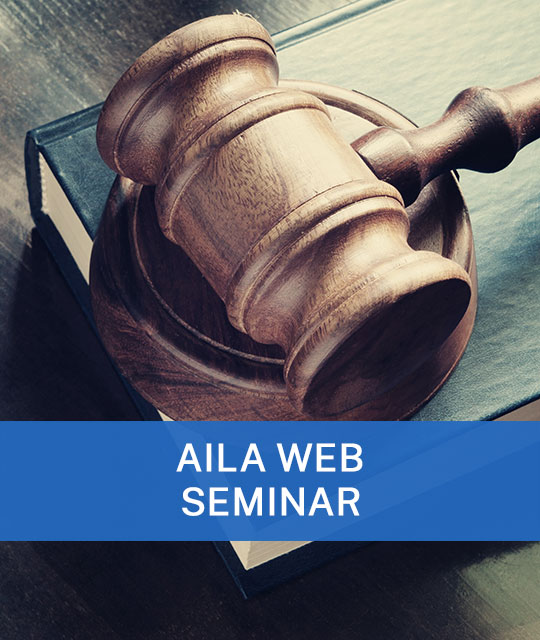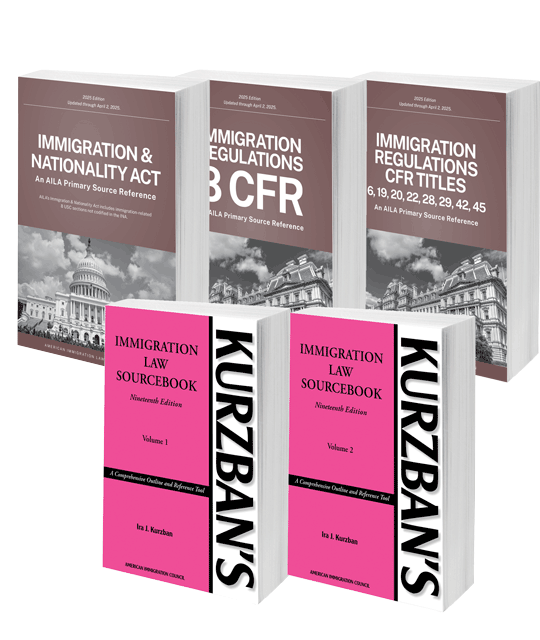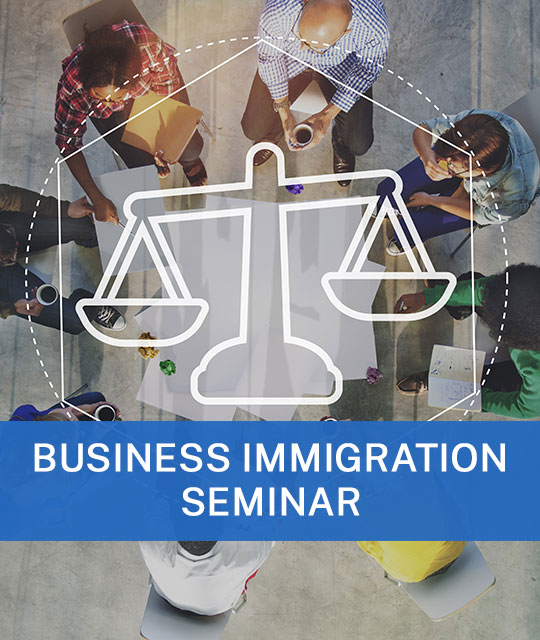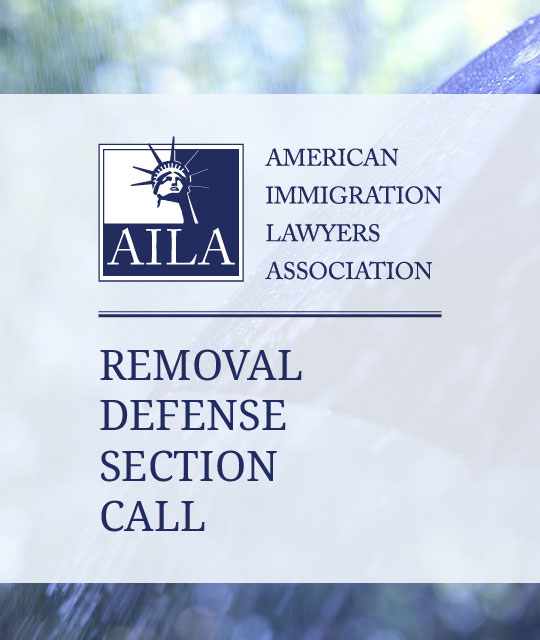Some grounds of inadmissibility and deportability grant DHS wide latitude in determining whether someone is admissible or deportable if the officer has a “reason to believe” (RTB) the noncitizen engaged in certain activities (e.g., drug trafficking, human trafficking, money laundering, security risks, and terrorism-related inadmissibility grounds (TRIG)), regardless of whether the foreign national has been convicted or even arrested. The RTB inadmissibility ground is especially problematic because the burden lies on the foreign national to, in essence, “prove a negative.” Expert panelists will provide legal arguments and advise on best practices used to overcome this ground of inadmissibility.
Featured Topics:
- Arguing around the Doyle Memorandum: Priority A specifically mentions INA §212(a)(3)(B), but what about individuals who fall under INA §212(a)(3)(A)?
- The government's burden and evidence used to establish RTB
- Venues where allegations of RTB grounds of inadmissibility can surface: DOS, USCIS, and EOIR
- Making the case: arguing that the RTB standard has not been met
- Working with criminal defense counsel to guard against an RTB finding of inadmissibility
AILA Membership Benefit – Access to Free Seminar Recordings (CLE Credit Available for $35)
Enjoy access to free seminar recordings (from October 2020–present) as an AILA Member. AILA encourages live attendance for those wishing to ask the speaker questions. CLE credit is included with purchase for live participants.
Recordings will be available approximately two weeks after the live event date. AILA members can access these seminars, with no CLE credit, for free. Recordings are CLE eligible in most jurisdictions and an administration fee is required to obtain CLE credit.
Contact us at cle@aila.org or visit AILA’s Web Seminar Recordings page for more information about receiving CLE credit for a web seminar recording.
| Product Details | |
| Event Date | March 11, 2025 |
| Format | Web Seminar |
| Length | 90 minutes |
| CLE Eligible | Yes. Live attendance must be recorded within one week of the event date in My CLE. This deadline does not apply to the OnDemand format. |
| Digital Library | Digital goods (MP3, PDF, ZIP, etc.) are available for download for two years after purchase. |
Eligible participants can receive up to 1.8 CLE credit hours. AILA will administer CLE credit only to individuals who register and log into the web seminar. AILA cannot verify your attendance and participation in this program unless you register directly for the web seminar and use your name to log in to participate in the program. Therefore, persons who log in or listen in on the web seminar as part of a group will not be able to obtain CLE credit.
Please note that your jurisdiction may limit the amount of distance learning credit you can earn. To view details on your jurisdiction's credit restrictions and CLE requirements, visit the CLE Center.
AILA has filed for CLE and specialized credit in all jurisdictions with mandatory CLE requirements. For details about specific approvals, contact us at cle@aila.org.
- AILA applies for accreditation upon attorneys’ request after participation for the following states: AR, DE, IA, ID, KS, KY, LA, ME, MN, MS, OR, TN and WY. Programs are typically approved.
- Florida and Rhode Island - Attorneys must apply on their own for approval of seminars in FL and RI. Programs are typically approved.
- The OnDemand Recording format does not qualify for CLE credit in the following jurisdictions: MO and PR. Please note that your jurisdiction may limit OnDemand credit based on the date of the original presentation. View the OnDemand Downloadable Expiration Chart for more details.
To receive CLE credit for the live event, attorneys must record web seminar attendance and the CLE code provided within one week of the web seminar date via My CLE.
Contact us at cle@aila.org or visit AILA’s Web Seminar Recordings page for more information about receiving CLE credit for a seminar recording.
Andrew K. Nietor (DL), AILA Board of Governors, San Diego, CA
Andrew Nietor practices immigration and criminal defense in San Diego, CA. He received his J.D. from The George Washington University Law School in 2000 and worked at Federal Defenders of San Diego, Inc. as a trial attorney before founding his own firm. Andrew serves on the Board of Directors of Federal Defenders of San Diego, AILA’s Board of Governors, AILA's Membership Committee, and is AILA’s Civility Ambassador. He is a former chair of AILA-San Diego.
Cory Forman, AILA Board of Governors, New York, NY
Cory Forman is the former Chairperson of the New York Chapter of AILA and currently serves as an Elected Director on AILA National’s Board of Governors. Cory heads Cohen Forman Barone, LLP’s immigration department. Having spent his career as both a criminal defense and immigration attorney, Cory has a specialized knowledge of representing non-citizens in both the criminal and immigration contexts. In 2007, Cory launched the firm’s “Crimmigration” division, which is responsible for litigating deportation issues and filing waivers in immigration court, developing criminal trial and plea-bargaining strategies based on an individual’s immigration concerns, vacating prior convictions through post-conviction litigation, and arguing writs of habeas corpus on behalf of those unlawfully detained by immigration and criminal authorities. The Crimmigration division also provides consultation services to other criminal defense and immigration attorneys around the country.
Mary E. Kramer, AILA Author, Immigration Consequences of Criminal Activity, 10th ed., Miami, FL
Mary Kramer is the author of the book Immigration Consequences of Criminal Activity: A Guide to Representing Foreign-Born Defendants, now in its tenth edition, and available at agora.aila.org. She is the 2015 recipient of the American Immigration Lawyer’s Association’s Edith Lowenstein Award: the premier immigration bar association’s highest award for excellence in advancing the practice of immigration law. Ms. Kramer is a former chair of the AILA South Florida Chapter. For several years, ending in 2024, she served on AILA National’s Department of State Liaison Committee. She also formerly chaired the ICE National Liaison Committee. Today, she chairs the local AILA ERO-ICE liaison committee. Ms. Kramer also serves on the Catholic Legal Services board of directors. She is a former adjunct professor of Immigration Law at Florida International University. A graduate of the College of Saint Benedict in Minnesota, cum laude, and the University of Wisconsin-Madison Law School, she is a member of the Florida Bar, the Southern District of Florida, the Eleventh Circuit Court of Appeals, and the U.S. Supreme Court. With a passion for writing and research, the focus of Ms. Kramer’s 33-year law practice is foreign nationals with criminal issues in front of immigration court, federal courts, USCIS, and consulates abroad. She also focuses on complex political asylum, CAT, and cooperating witness matters. Ms. Kramer is fluent in Spanish.
Glenda M. Regnart, LeCompte, LA
Glenda M. Regnart serves as Counsel to the Firm for Cascadia Cross Border Law, LLC. Ms. Regnart spent fifteen years working in the federal government, most of which was with the Department of Homeland Security, U.S. ICE serving in a variety of roles, including Chief Counsel for the New Orleans Field Office. Ms. Regnart also prosecuted removal cases involving criminal noncitizens, national security and high-profile immigration removals. Today, Ms. Regnart focuses on providing expert advice and opinions concerning the immigration consequences of criminal convictions to defense counsel. In recent years, Ms. Regnart has also begun practicing Veterans Law assisting members of the armed services with both immigration consequences advice and claims for benefits.







